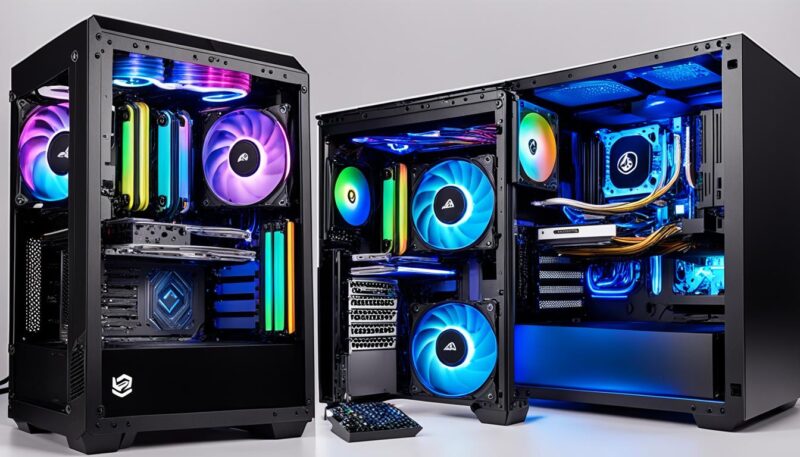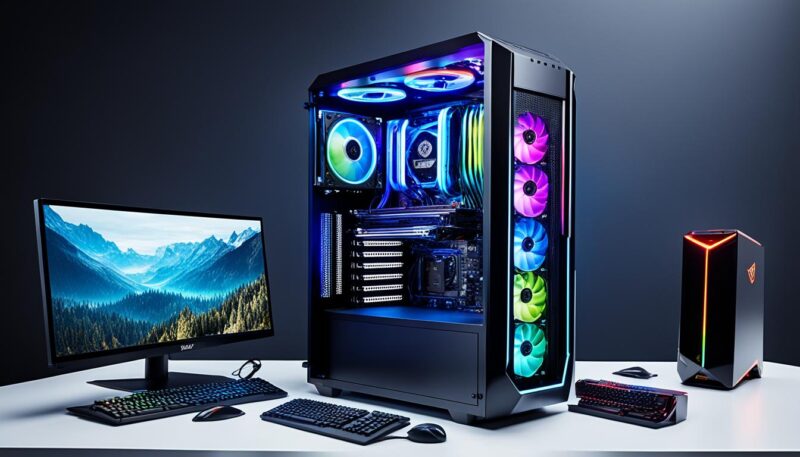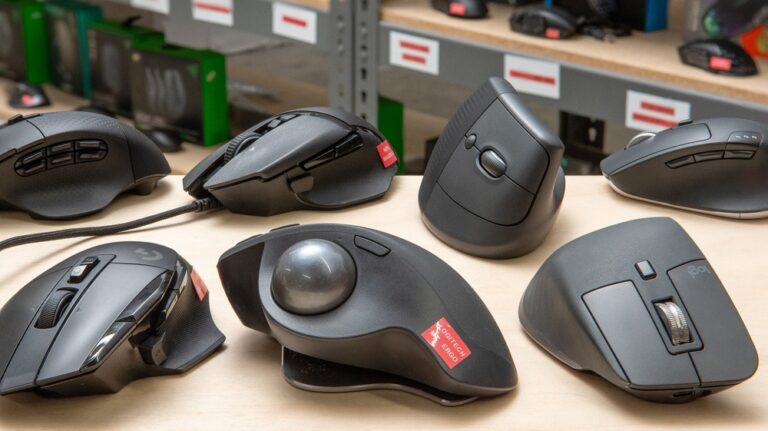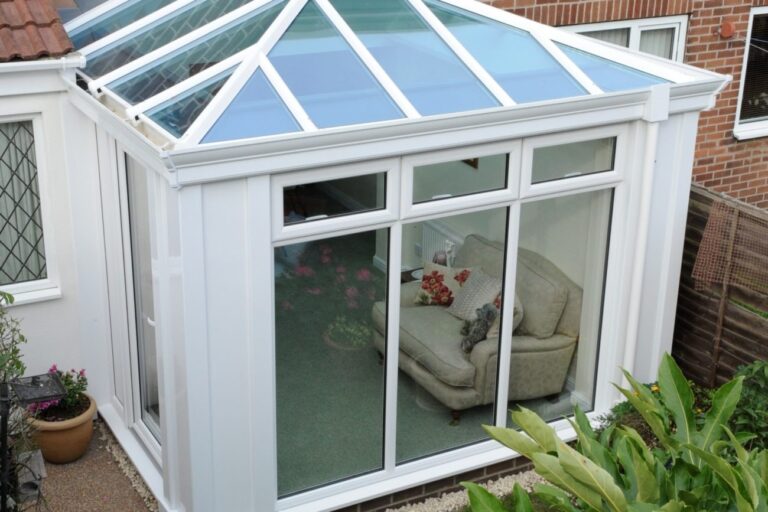There’s a unique thrill in stepping into the world of gaming, especially when contemplating your next gaming rig investment. The decision to build or buy a gaming PC is more than just a financial one—it’s an emotional journey. Picture yourself immersed in the meticulous world of Hitman, the expansive realms of Dying Light, or strategizing your way through Tropico. Each click, each decision on your gaming hardware costs, paves the road to those exhilarating experiences. Think about the anticipation of exploring Hogwarts or nailing that perfect shot in the next Hitman installment; these moments deserve a gaming system that can deliver.
Many gamers face the dilemma of balancing performance with cost. Whether it’s the flexibility of medium settings or the need for forward compatibility, buying a gaming PC often means weighing every option. However, understanding your gaming needs ensures you aren’t overspending while still future-proofing your system. Through informed choices and building a gaming PC tips, your journey can be both exciting and budget-conscious.
Key Takeaways
- Understand your gaming needs before deciding on how much to spend.
- Weigh the cost of gaming PCs across budget, mid-range, and high-end options.
- Consider the pros and cons of building vs. buying a gaming PC.
- Future-proofing is essential for a lasting gaming experience without overspending.
- Medium to high-range GPUs are recommended for optimal gaming experiences.
How Much Should I Spend on a Gaming PC
Investing in a gaming PC is a significant decision that hinges on understanding your specific gaming needs and the budgetary range that suits those requirements best. Whether you aim for high-end performance or a cost-effective gaming PC, each choice comes with its own set of considerations and trade-offs.
Understanding Your Gaming Needs
Determining the right gaming PC budget starts with assessing what kind of games you plan to play and at what settings. For instance, high-graphics AAA titles demand a more robust CPU and GPU, whereas indie games and older titles might run smoothly on less powerful hardware. Prioritize components based on necessity—such as CPU clock speed, GPU VRAM size, and storage capacity—to match your gaming habits.
Cost of Gaming PCs: Budget, Mid-Range, and High-End
The gaming PC price range can generally be segmented into three categories: budget, mid-range, and high-end.
- Budget Gaming PCs: Ranges from $500 – $800.
- Mid-Range Gaming PCs: Spans between $800 – $1500.
- High-End Gaming PCs: Exceeds $1500, often required for 4K gaming.
Understanding these categories helps in identifying a cost-effective gaming PC that meets your needs without overspending.
Gaming PC Affordability and Performance
Balancing gaming performance vs price is essential for any gamer. A higher price often equates to better performance, but it’s crucial to avoid unnecessary overspending on features you might not use. Consider opting for mid-range components that offer excellent performance at a more affordable price. This balanced approach ensures you get the best bang for your buck without compromising on gaming quality.
Building vs. Buying: Pros, Cons, and Costs
When deciding between building vs buying gaming PC, there are several factors to weigh. While a custom gaming PC build can initially seem daunting, it offers potential cost benefits in the long run due to better quality gaming PC components. Building allows for a deeper understanding and personalization.
However, pre-built gaming PCs provide an edge in quick setup and convenience. They often come with extended warranties and professional support, reducing the potential for user errors or compatibility issues that can occur during a custom gaming PC build. Yet, some of these pre-built options might compromise on component quality in less noticeable areas such as the power supply or hard drive.

There’s a certain agility in troubleshooting and upgrading a custom gaming PC build. Enthusiasts can pick specific parts that match their precise needs, thus avoiding the often lower-quality components found in some pre-built gaming PCs. The flexibility to choose and upgrade individual gaming PC components provides a significant advantage for those with specific performance requirements.
Conversely, the convenience of pre-built gaming PCs cannot be overstated. It’s an excellent choice for those who prefer an immediate, hassle-free gaming experience with added service values. The decision ultimately hinges on whether one prioritizes personalization and component quality over convenience and immediate use.
Conclusion
Deciding whether to build or buy a gaming PC is a significant investment that hinges on personal preference, time, and expertise. Building a PC can be a rewarding experience, offering long-term cost savings and the ability to customize every component according to specific needs. Additionally, building fosters an invaluable understanding of gaming hardware costs and how different parts fit together to enhance gaming performance.
On the flip side, purchasing a pre-built gaming PC provides immediate functionality and peace of mind through warranty and tech support services. This route allows gamers to dive straight into their favorite titles without the stress associated with assembling their own rig. The initial choice between building versus buying doesn’t lock one into a static configuration, as both options welcome future upgrades, ensuring flexibility and future-proofing one’s gaming setup.
Ultimately, gaming PC affordability and the desire for either a budget gaming setup or a high-end powerhouse should guide this decision. While each approach has its own set of advantages and challenges, what matters most is maximizing enjoyment and performance within your allocated budget. Whether creating a custom build or opting for the convenience of a pre-built system, the gaming journey should be as thrilling and satisfying as the games themselves.
Source Links
- https://www.cdw.com/content/cdw/en/articles/hardware/building-vs-buying-pc.html
- https://www.corsair.com/us/en/explorer/diy-builder/accessories/prebuilt-pc-vs-building-your-own-which-is-better/
- https://www.reddit.com/r/buildapc/comments/13j3e16/new_to_computers_nowadays_is_it_cheaper_to_build/
Related Posts:
- How to Check How Much Wattage Your PC Is Using? DIY…
- Why Sharing Too Much Personal Information on Dating…
- Buying a Used Phone? Here’s Why You Should Always…
- Artificial Intelligence ─ A New Frontier in Gaming
- The Role of Sweepstakes Casinos in the Gaming Industry
- 9 Tech Innovations That Are Revolutionizing the…








